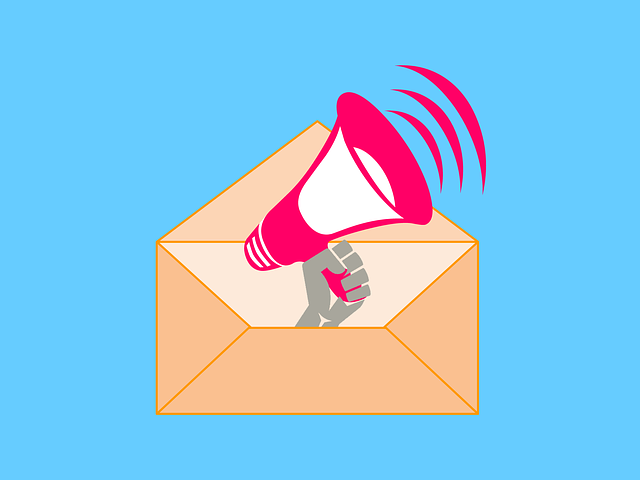Are you still stuck in the Stone Age, relying solely on email marketing for your travel and hospitality business? It’s time to step into the digital era and embrace the power of social media.
With its ability to connect with millions at the click of a button, social media has revolutionized the way we communicate and market our businesses. But is it really better than email marketing?
In this article, we’ll delve into the age-old debate of email marketing versus social media and uncover which is truly the champion for the travel and hospitality industry.
We’ll examine the reach and targeting options, engagement and conversion rates, cost-effectiveness and return on investment, customer relationship building, and the utilization of user-generated content and influencer marketing.
So, put down your quill and parchment, and join us as we navigate the exciting world of digital marketing.
Key Takeaways
- Social media offers a visually appealing way to reach a wide audience, while email marketing allows for targeting based on preferences and travel history.
- Email marketing allows for precise geographic targeting and personalization based on previous bookings, while social media offers a global reach and personalization options.
- Analyzing engagement and conversion rates is crucial for marketing decisions, with email campaigns monitoring open rates, click-through rates, and conversion rates, while social media promotions track reach, impressions, likes, comments, and shares.
- Combining email marketing and social media allows for a comprehensive customer relationship management strategy, leveraging user-generated content and influencer marketing to enhance brand visibility and reach.
Comparison of Reach and Targeting Options
When it comes to reach and targeting options, social media allows you to visually connect with a wide audience through eye-catching images and videos, while email marketing enables you to specifically target individuals based on their preferences and travel history.
With social media, you can reach a large number of people across different geographic locations, making it ideal for promoting your travel and hospitality business to a global audience. Additionally, social media platforms offer personalization options, allowing you to tailor your content and advertisements to specific demographics and interests.
On the other hand, email marketing allows for precise geographic targeting, ensuring that your messages reach individuals in specific locations. Moreover, email marketing provides various personalization options, such as addressing recipients by their names and offering customized travel recommendations based on their previous bookings.
By analyzing engagement and conversion rates, you can determine which approach is more effective in driving bookings and building customer loyalty. Transitioning into the subsequent section, let’s explore how analyzing these metrics can help you make informed marketing decisions.
Analyzing Engagement and Conversion Rates
To analyze engagement and conversion rates, have you considered the impact of using email campaigns versus social media promotions in the travel and hospitality field? Tracking metrics is crucial in understanding how your audience engages with your marketing efforts.
With email campaigns, you can easily monitor open rates, click-through rates, and conversion rates. You can also segment your audience and personalize your content to maximize engagement.
On the other hand, social media promotions allow you to track metrics like reach, impressions, likes, comments, and shares. This data can help you gauge the level of audience interaction with your posts. Additionally, design and content optimization play a significant role in boosting engagement and conversion rates for both email campaigns and social media promotions.
By creating visually appealing and compelling content, you can capture your audience’s attention and drive them to take action. Transitioning into the subsequent section about ‘cost-effectiveness and return on investment,’ analyzing these engagement and conversion metrics will provide valuable insights into the effectiveness of your marketing strategies.
Cost-Effectiveness and Return on Investment
In order to maximize your budget and ensure a profitable outcome, it’s essential to carefully evaluate the cost-effectiveness and return on investment of different promotional strategies in the travel and hospitality sector.
When comparing email marketing and social media, cost effectiveness is a crucial factor to consider. Email marketing is known for its high return on investment, with an average of $38 earned for every dollar spent. It allows you to reach a targeted audience at a relatively low cost, minimizing wastage.
On the other hand, social media can be cost-effective as well, especially when considering the potential organic reach and the ability to engage with customers directly. However, it requires a significant investment in terms of time and resources to create compelling content and build a strong social media presence.
Ultimately, measuring success through key performance indicators such as click-through rates and conversion rates will help you determine which strategy is more cost-effective for your business.
This analysis sets the foundation for building and maintaining customer relationships, which we will explore next.
Building and Maintaining Customer Relationships
To truly excel in the travel and hospitality industry, you must become a master at establishing and nurturing long-lasting connections with your valued customers. Customer loyalty is paramount in this competitive landscape, and one of the most effective ways to build and maintain these relationships is through personalized experiences.
By tailoring your marketing efforts to the specific needs and preferences of your customers, you can create a sense of exclusivity and make them feel truly valued. Email marketing allows for targeted messaging and segmentation, enabling you to deliver personalized offers and recommendations directly to their inbox.
Social media, on the other hand, provides a platform for interactive engagement, where you can respond to customer inquiries and feedback in real-time. By combining the power of email marketing and social media, you can create a comprehensive customer relationship management strategy that fosters loyalty and drives repeat business.
As you transition into the subsequent section about leveraging user-generated content and influencer marketing, it’s important to recognize the role these strategies play in enhancing customer relationships.
Leveraging User-Generated Content and Influencer Marketing
Enhance your customer relationships by incorporating user-generated content and influencer marketing, allowing your valued customers to visually showcase their experiences and recommendations.
User-generated content strategies can play a significant role in building trust and authenticity for your travel and hospitality brand. Encourage your customers to share their photos, videos, and reviews on social media platforms using your branded hashtags. This will not only provide valuable content for your marketing efforts but also engage your customers and foster a sense of community.
Collaborating with influencers who have a strong presence in the travel industry can further amplify your brand’s visibility. Seek influencer collaboration opportunities through sponsored trips, product placements, and reviews. Harness the power of influencers’ reach and engagement to expand your brand’s reach and attract new customers.
By leveraging user-generated content and influencer marketing, you can create a strong connection with your audience and inspire them to choose your travel and hospitality services. Transitioning into the subsequent section, integrating email marketing and social media can further maximize your marketing efforts.
Integrating Email Marketing and Social Media for Optimal Results
Maximize the impact of your digital presence by seamlessly integrating your email campaigns with your social media strategy, driving higher engagement and conversions for your travel and hospitality brand. Cross-platform promotion and content synchronization are key to achieving optimal results.
By integrating your email marketing and social media efforts, you can effectively leverage the strengths of both channels. Start by including social media icons and links in your email campaigns, encouraging subscribers to follow and engage with your brand on social platforms. This cross-platform promotion not only expands your reach but also helps build a loyal community of followers.
Additionally, synchronize your content across email and social media channels. Repurpose your email content for social media posts, and vice versa. This ensures consistent messaging and increases the visibility of your brand across different platforms.
Integrating email marketing and social media is a powerful strategy that can significantly enhance your digital marketing efforts. Take advantage of cross-platform promotion and content synchronization to maximize engagement and conversions for your travel and hospitality brand.
Frequently Asked Questions
How can the travel and hospitality industry effectively utilize user-generated content and influencer marketing to boost their marketing efforts?
To effectively utilize user-generated content and influencer marketing in the travel and hospitality industry, you must realize that relying on your own creativity and expertise is so passé. Instead, encourage your customers to create content for you!
By implementing user-generated content strategies, you can harness the power of authentic, relatable experiences that resonate with your target audience.
Additionally, influencer marketing effectiveness can be maximized by partnering with influencers who align with your brand values and have a genuine connection with their followers.
Get ready to see your marketing efforts soar!
What are the key factors to consider when determining the cost-effectiveness and return on investment of email marketing and social media campaigns in the travel and hospitality industry?
When determining the cost-effectiveness and return on investment (ROI) of your email marketing and social media campaigns in the travel and hospitality industry, there are key factors to consider.
Conduct a thorough cost effectiveness analysis by comparing the costs of each channel, including content creation and advertising expenses.
Measure ROI by tracking conversion rates, click-through rates, and bookings generated.
Analyze the data to determine which channel provides the highest ROI and allocate your resources accordingly.
How can the travel and hospitality industry leverage both email marketing and social media to build and maintain strong customer relationships?
To build and maintain strong customer relationships in the travel and hospitality industry, it is important to leverage automation and optimize content across email marketing and social media. By using automation tools, you can streamline communication, personalize experiences, and nurture leads.
To optimize content, tailor it to each platform, utilize engaging visuals, and provide valuable information. This data-driven approach will help you effectively connect with customers, increase brand loyalty, and drive repeat business.
What are the most effective strategies for analyzing engagement and conversion rates in email marketing and social media campaigns within the travel and hospitality industry?
To effectively analyze engagement and conversion rates in email marketing and social media campaigns within the travel and hospitality industry, you need to track performance metrics. By analyzing metrics such as open rates, click-through rates, and conversion rates, you can gain valuable insights into the effectiveness of your campaigns.
This data-driven approach allows you to identify areas for improvement and optimize your strategies. By constantly monitoring and analyzing these metrics, you can make informed decisions to drive better results and stronger customer relationships.
How can the travel and hospitality industry integrate both email marketing and social media to achieve optimal results and maximize their marketing reach and targeting options?
To achieve optimal results and maximize marketing reach, the travel and hospitality industry should integrate email marketing and social media. By optimizing targeting, you can effectively reach your desired audience.
Utilize personalization strategies to tailor content and provide personalized experiences for customers. This approach ensures that your campaigns resonate with individuals, increasing engagement and conversion rates.
By combining the power of email marketing and social media, you can create a comprehensive marketing strategy that drives results and maximizes your reach.
Conclusion
In conclusion, when it comes to the travel and hospitality industry, email marketing and social media both offer unique advantages. However, if you want to skyrocket your business to unimaginable heights, there’s only one clear winner.
With its unparalleled reach, precise targeting options, impressive engagement and conversion rates, cost-effectiveness, and unbeatable return on investment, email marketing reigns supreme. It’s the ultimate powerhouse that will not only build and maintain customer relationships but also leverage user-generated content and influencer marketing.
Don’t settle for mediocrity; choose email marketing for optimal results!








